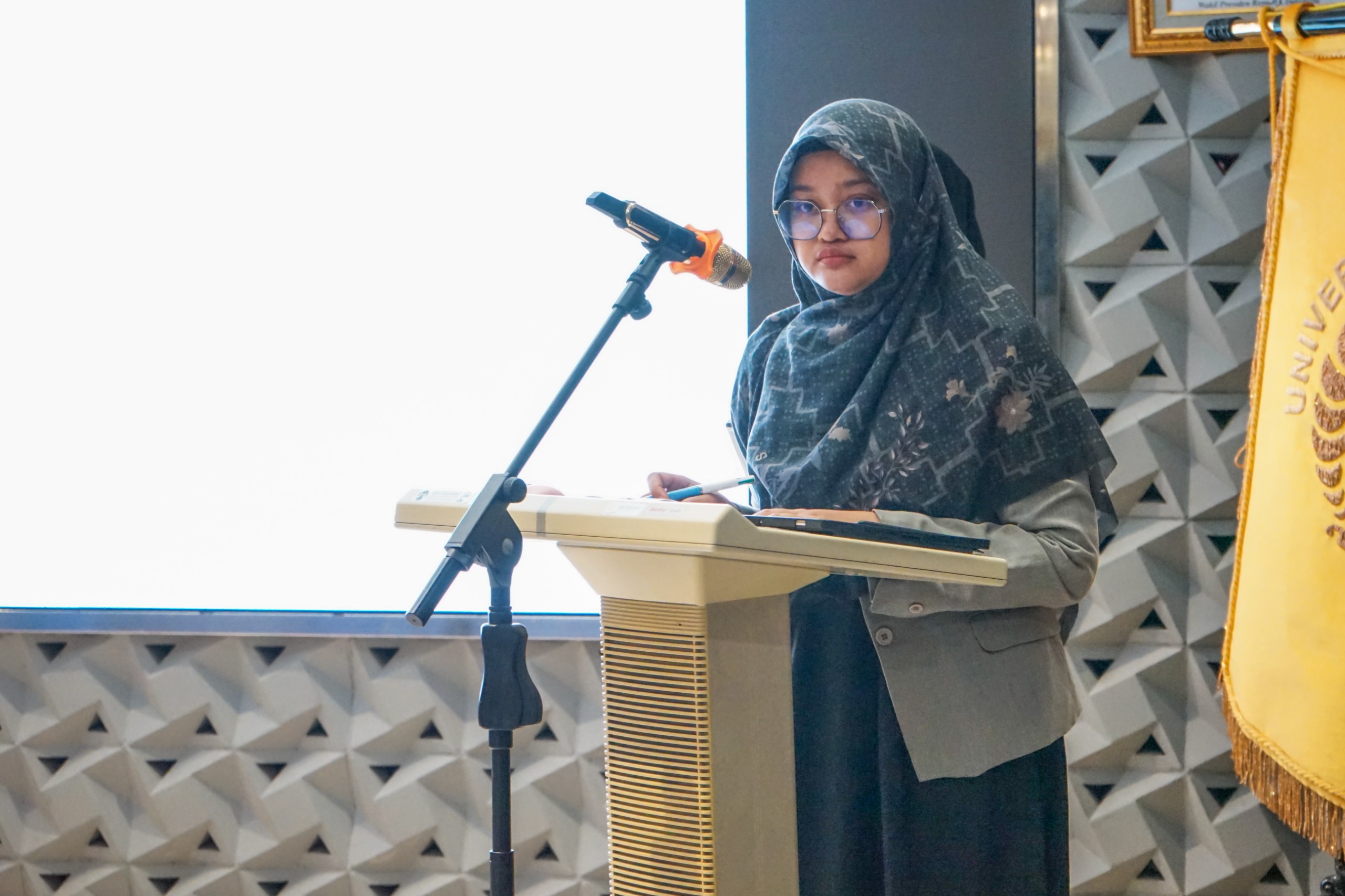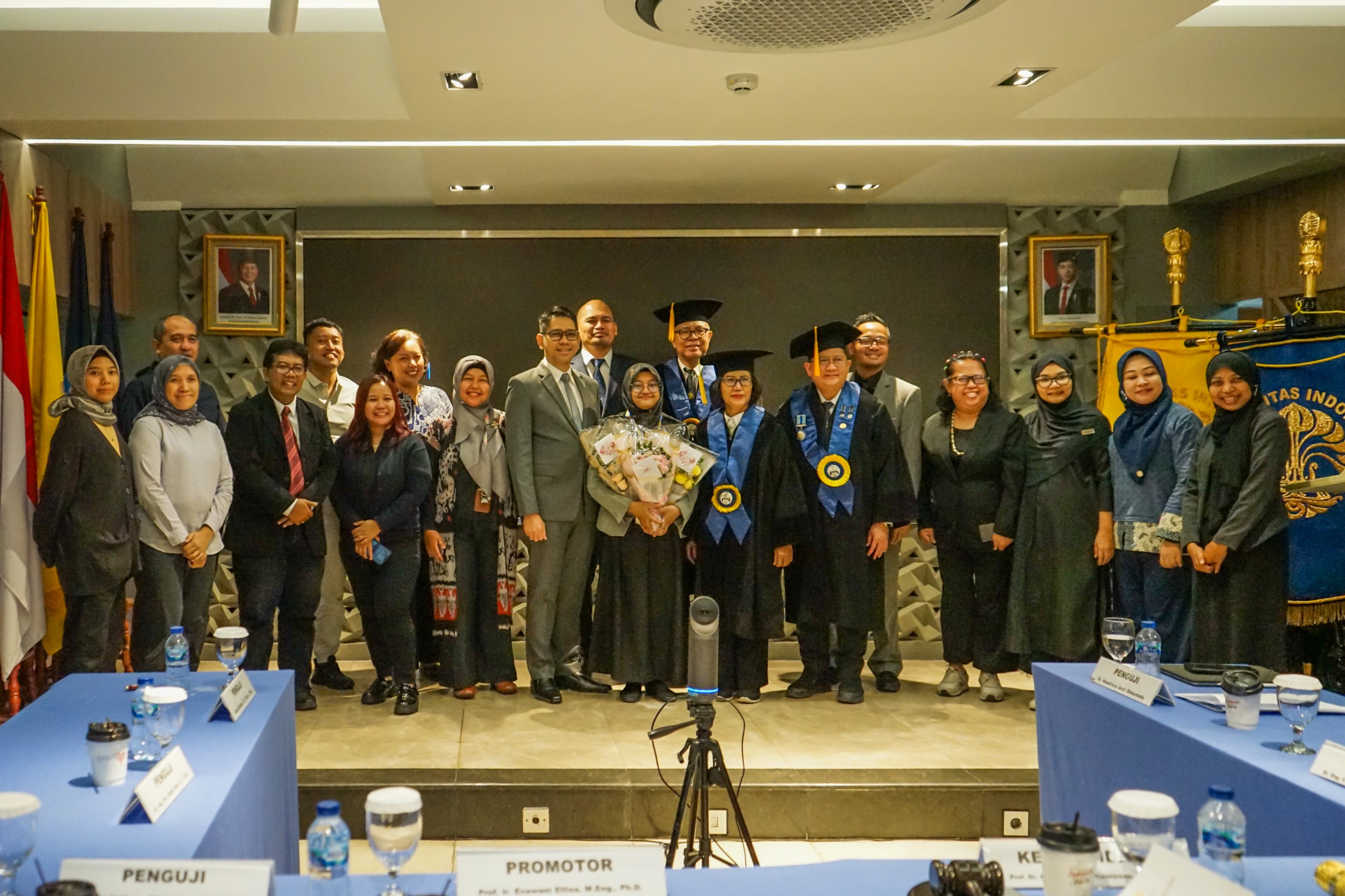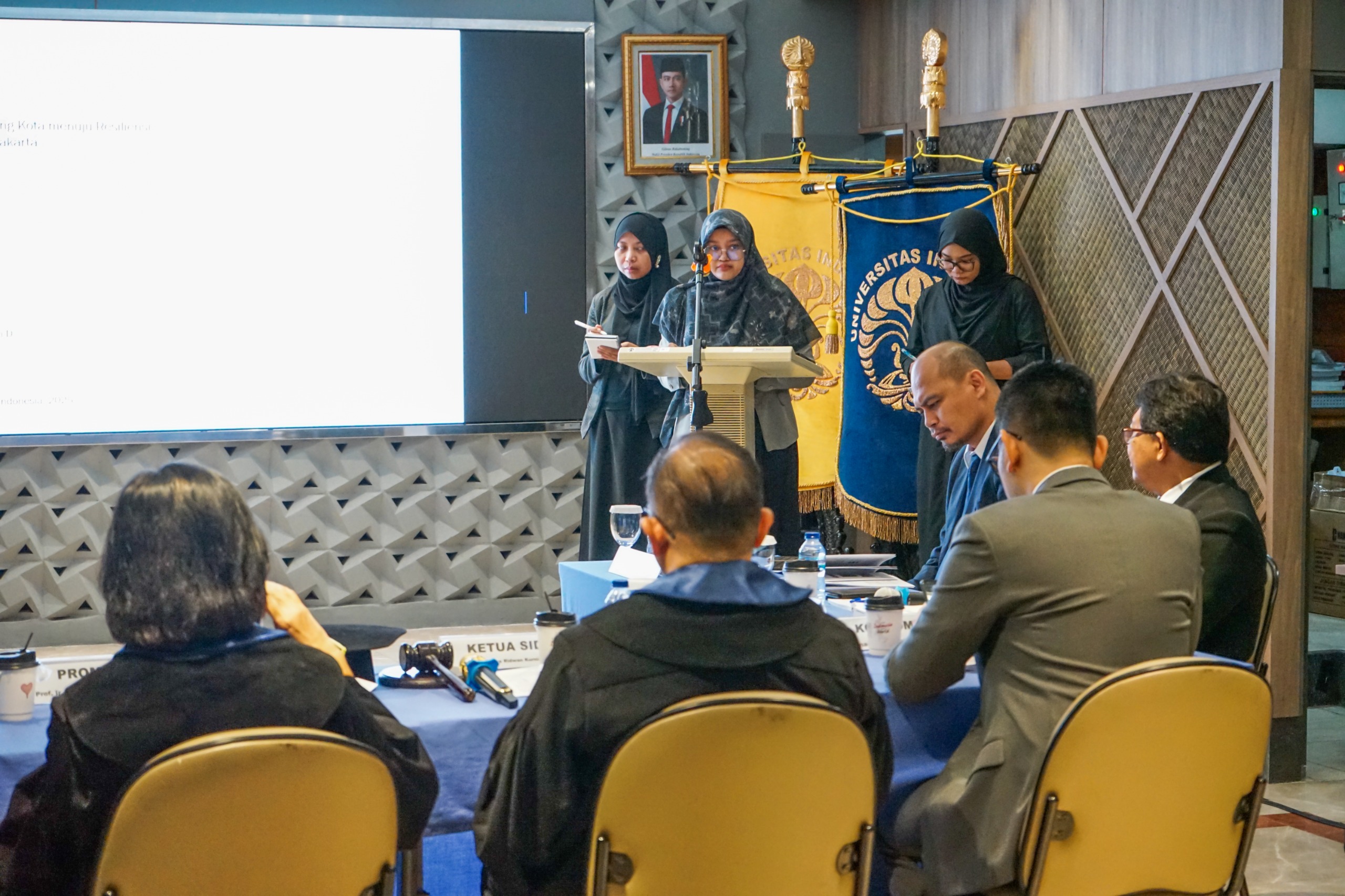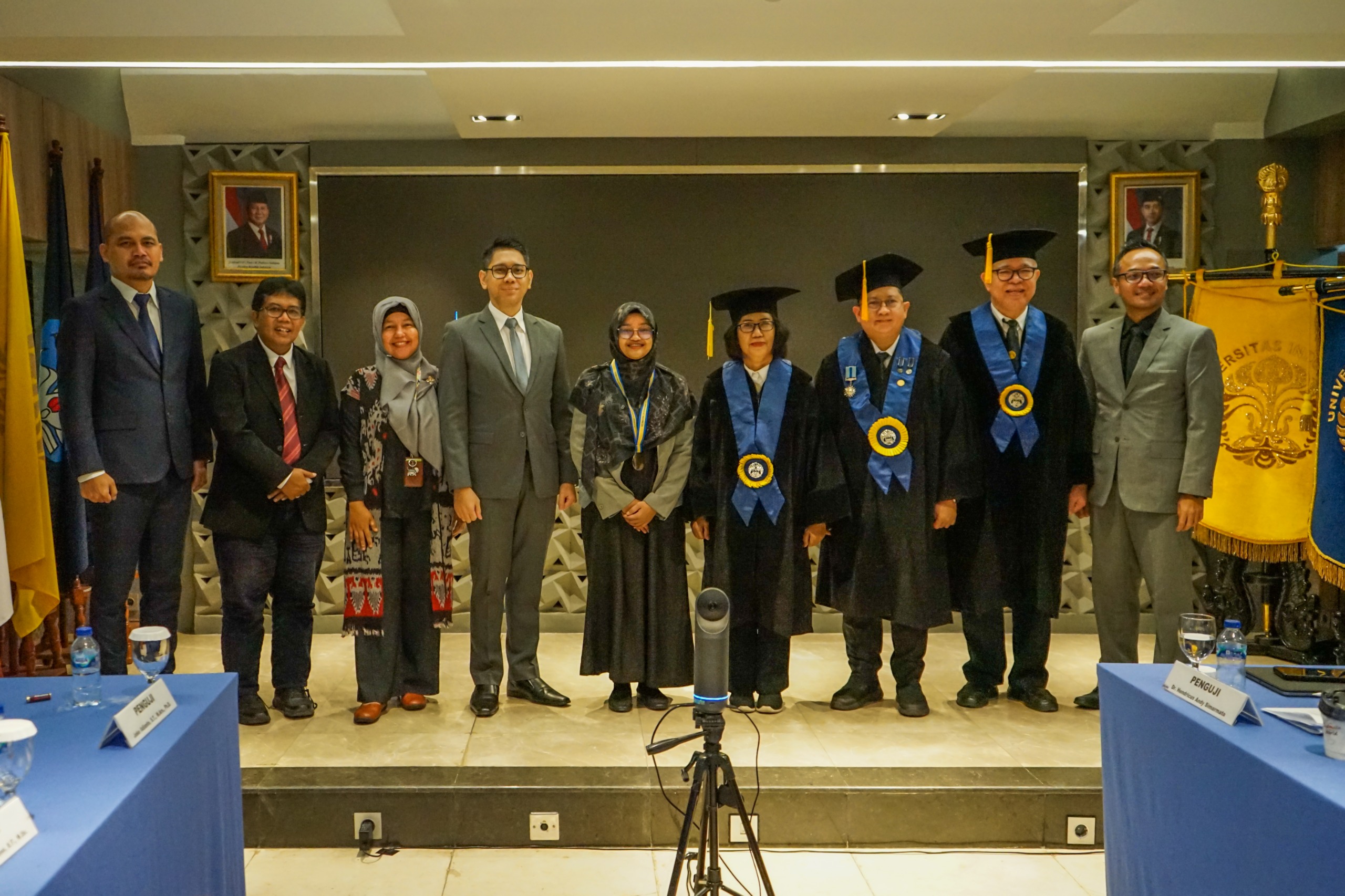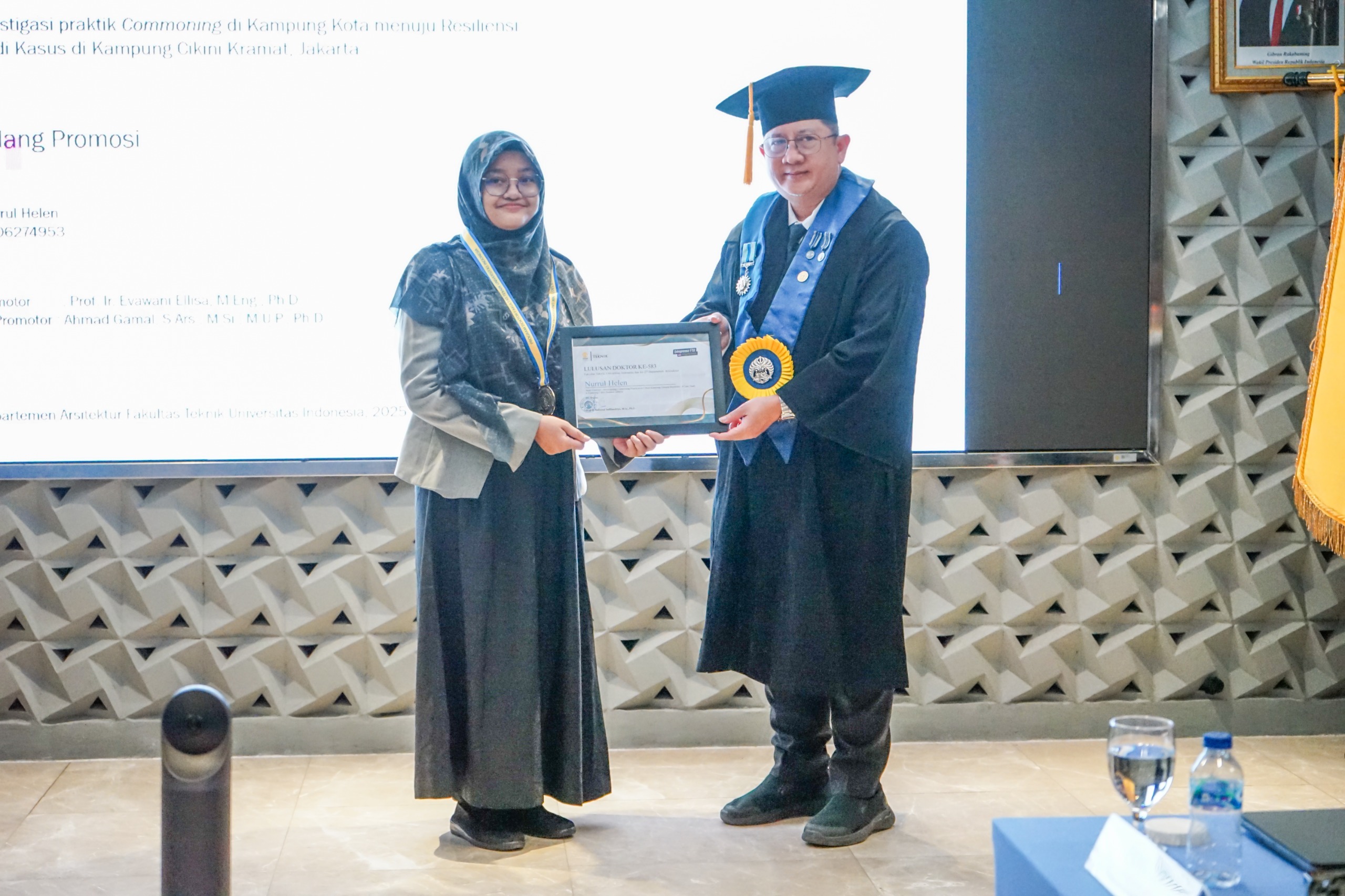The COVID-19 pandemic has highlighted the importance of proper sanitation facilities, a crucial basic need that is often overlooked despite being a fundamental pillar of public health. In densely populated areas, sanitation facilities’ physical environment and governance are usually inadequate. If appropriately managed, shared sanitation becomes affordable for residents in these areas.
This issue motivated Nurrul Helen to research standard practices in urban villages, such as Kampung Cikini Kramat, and their contribution to the resilience of urban commons during crises like the COVID-19 pandemic. On Thursday (9/1), Helen defended her dissertation, Investigating Commoning Practices in Urban Villages Toward Resilience: A Case Study of Kampung Cikini Kramat, Jakarta. Helen earned her Doctorate with honours (GPA 3.84), becoming the 27th Doctor from the Department of Architecture and the 583rd from the Faculty of Engineering, Universitas Indonesia.
The research focuses specifically on Kampung Cikini Kramat (RW 01, Pegangsaan Subdistrict, Menteng District, Central Jakarta). It aims to understand the impact of the COVID-19 pandemic on the dynamics of urban commons in the village, focusing on the relationship between individual behaviour and collective management of shared spaces and resources. The study’s findings are expected to contribute to future urban planning by recognizing urban villages as integral parts of the cityscape.
“Commons refers to shared resources used by a group of people. In this study, urban spaces act as commons, while the group managing them is called commoners. The process of managing and producing these commons is known as commoning,” Helen explained.
Helen concluded that her research provides valuable insights into the role of local knowledge, trust, and social cohesion in building the resilience of marginalized communities through collective action and governance. Encouraging the participation of standard practices at both the communal and individual levels requires adequate information and knowledge to drive collective action. Additionally, trust in local authorities highlights the need for collective governance. During both pandemic and normal conditions, village authorities such as RW, RT, and other regional leaders play a crucial role in safeguarding common spatial, physical, or knowledge-based resources to ensure village stability.
Acting Dean of FTUI, Prof. Ir. Mahmud Sudibandriyo, MSc., Ph.D., expressed his appreciation for Helen’s research. He stated, “Through this research, we hope that the government, as urban planners, can develop better city planning that considers the presence of existing urban villages.”
The Doctoral Promotion Session was chaired by Prof. Dr. Kemas Ridwan Kurniawan, S.T., M.Sc., with Prof. Ir. Evawani Ellisa, M.Eng., Ph.D., as the Promoter, and Ahmad Gamal, S.Ars., M.U.P., Ph.D., as the Co-Promoter. The examination panel included Prof. Ir. Antony Sihombing, MPD., Ph.D., Joko Adianto, S.T., M.Ars., Ph.D., Dr.-Ing. Ova Candra Dewi, S.T., M.Sc., Dr.phil. Hendricus Andy Simarmata, S.T., M.Si., and Dr.Eng. Ir. Ahmad Sarwadi, M.Eng., IPM.
***
Public Communication Office
Faculty of Engineering Universitas Indonesia

